10. The Mule and the Henny (Horse and Donkey)
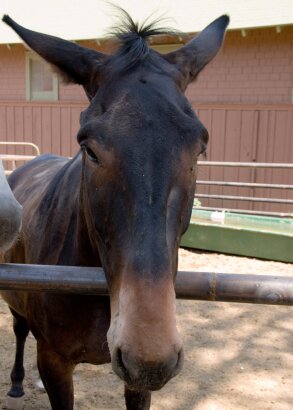
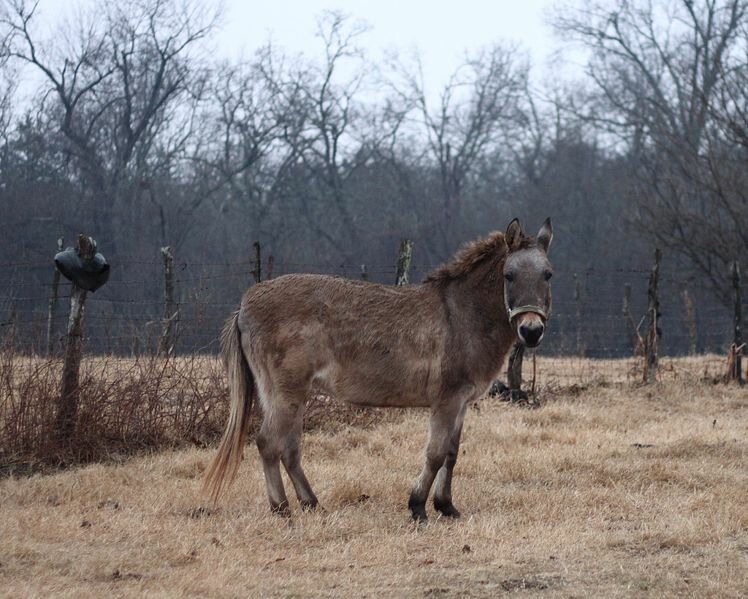
These are probably the most well-known hybrid animals. Both mules and hennies (also known as 'hinnies') are born when a horse and a donkey mate. The difference is that a mule is born from a male donkey (a jack) bred to a female horse (a mare), whereas a henny is from a male horse (a stallion) bred to a female donkey (a jenny). The henny has shorter ears than a mule because it takes after the horse father. Hennies are much more rare than mules: 90% of the breedings are unsuccessful.
9. Wholphin (Dolphin and False Killer Whale)
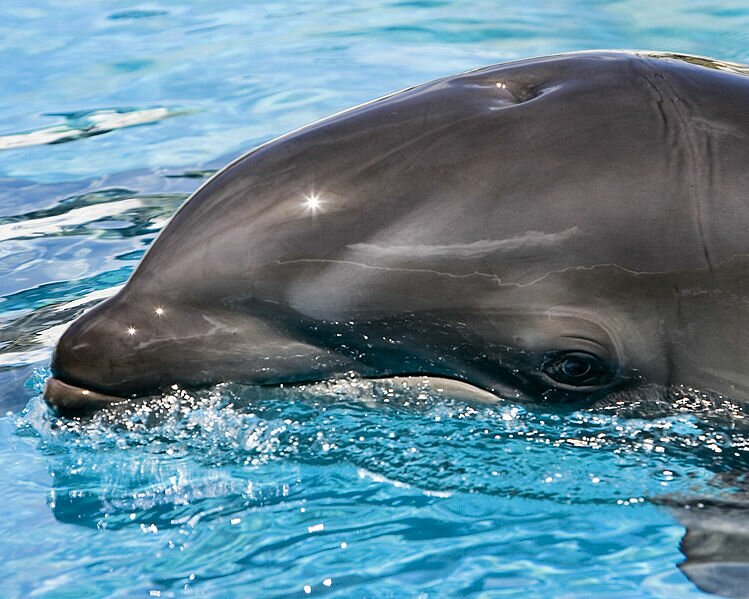
The 9-month-old wholphin Kawili'Kai in September 2005.
Even though 'wholphin' sounds like a really spectacular hybrid, it is not as amazing as it sounds. A wholphin is born from a mating of a dolphin mother and a false killer whale father. A false killer whale is basically just a larger version of a common dolphin. Although Wholphins have been reported to exist in the wild, there are currently only two in captivity, both at Sea Life Park in Hawaii.
8. The Cama (Camel and Lama)
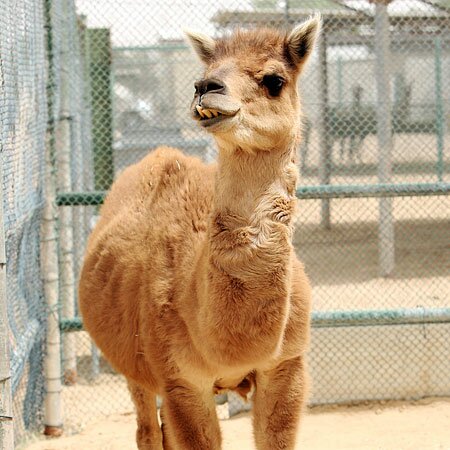
Meet Rama, the world's first Cama.
A cama is a hybrid between a camel and a llama, produced via artificial insemination by a breeder in Dubai attempting to create a animal with the size and strength of the camel, but the more cooperative temperament of the llama.The Dromedary camel is six times the weight of a Llama, hence artificial insemination was required to impregnate the Llama female. Though born even smaller than a Llama calf, the Cama had the short ears and long tail of a camel, no hump and llama-like cloven hooves rather than the dromedary-like pads.
7. Hybrid Pheasant (Pheasant and Grouse)
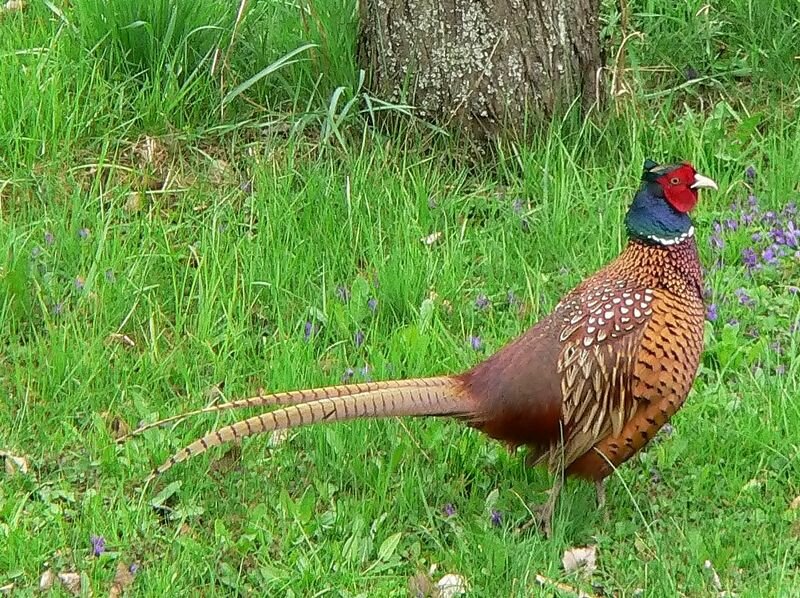
Hybrid male pheasant in Europe, intermediate between Mongolian Ringneck and Caucasus group phenotype.
An animal that is certainly not picky when it comes to mating, is the common pheasant. Due to captive breeding and hybridization between subspecies and with the Green Pheasant, there are many color forms of the male Common Pheasant, ranging in color from nearly white to almost black. Hybrid pheasants are not the only type of gamebird hybrids: there are also goose, duck and turkey hybrids, amongst others.
6. The Zorse/Zebrula (Zeebra and Horse)
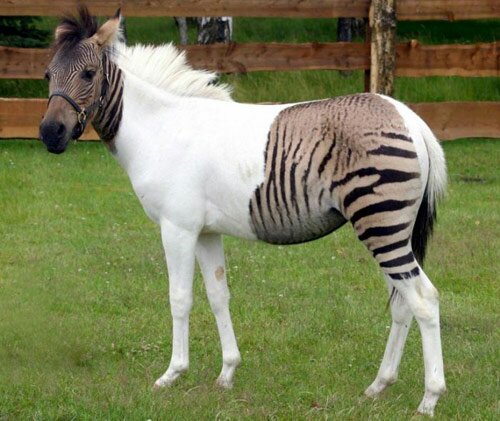
The zorse: crosbreed from a mating or a horse and a zeebra.
A zorse or zebrula is the offspring of a zebra stallion and a horse mare; the rarer reverse pairing is sometimes called a hebra.The zorse is shaped more like a horse than a zebra, but has boldly striped legs and, often, stripes on the body or neck. Like most other interspecies hybrids, it is infertile.
Zorses are preferred over purebred zebras for riding and drought for several reasons, although they are still not as easily handled as purebred horses and should not be ridden or purchased by novices. Their more horselike shape, particularly in the shoulder region, makes it easier to obtain harness.
5. The Liger (Lion and Tiger)

The liger is the largest cat in the world.
The Liger is a hybrid cross between a male lion and a female tiger. A liger resembles a tiger with diffused stripes. They are the largest cats in the world. A similar hybrid, the offspring of a male tiger and a female lion is called a tigon. Ligers may inherit rosettes from the lion parent. These markings may be black, dark brown or sandy. The background color may be correspondingly tawny, sandy or golden.
According to the Association of Zoos and Aquariums, accredited zoos frown on the practice of mixing two different species and have never bred ligers. Keeping the two species separate has always been standard procedure. However they have admitted that ligers have occurred by accident.
4. The Beefalo (Cow and Bison)
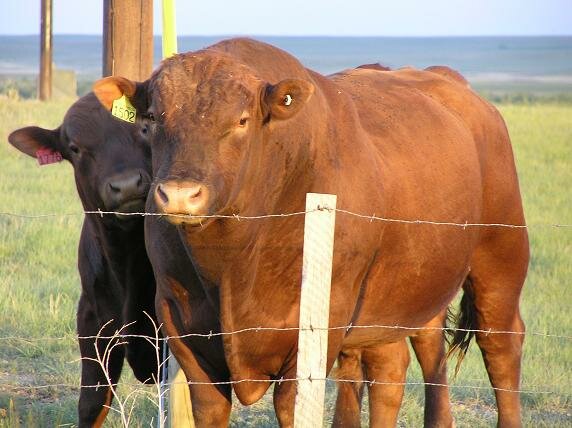
The beefalo was created with a view towards beef production.
Beefalo are a fertile hybrid offspring of domestic cattle and the American Bison. The breed was created to combine the best characteristics of both animals with a view towards beef production. Creating the Beefalo has proved to be a serious setback to wild American Bison conservation. The current American Bison population has been growing rapidly and is estimated at 350,000, but this is compared to an estimated 100 million in the mid-19th century.
3. Grizzly– Polar Bear Hybrid
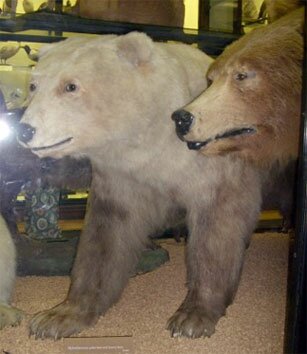
Polar/Brown Bear Hybrid, Rothschild Museum, Tring, UK.
A Grizzly polar bear hybrid is a hybrid that has occurred both in captivity and in the wild. In 2006, the occurrence of this hybrid in nature was confirmed by testing the DNA of a strange-looking bear that had been shot in the Canadian arctic. Previously, the hybrid had been produced in zoos and was considered a "cryptid" (a hypothesized animal for which there is no scientific proof of existence in the wild). Polar bear hybrids with Grizzly bears have been reported and shot, but DNA techniques were not available to verify the bears' ancestry.
2. Leopon (Leopard and Lion)
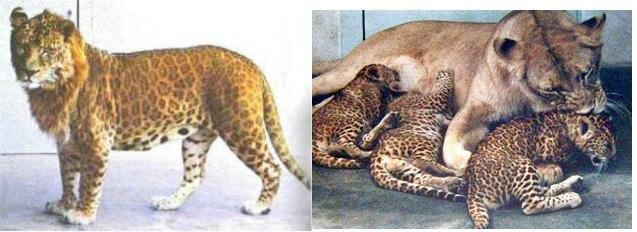
The leopon: basically a big lion with spots.
A leopon is the result of breeding a male leopard with a female lion. The head of the animal is similar to that of a lion while the rest of the body carries similarities to leopards. They have been bred in zoos in Japan, Germany, and Italy. The leopon has the size and strength of a lion. But, unlike the lion, they have extraordinary climbing abilities like the leopard. The female leopons may be torn between the solitary nature of the leopard and the social nature of a lioness.
1. The Iron Age Pig (Pig and Wild Boar)
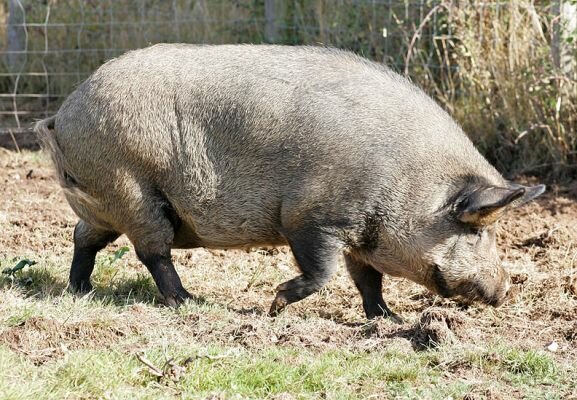
The iron age pig - bred for the specialty meat market.
The Iron age pig is a hybrid between domestic Tamworth pigs and wild boar. They were originally created in order to reconstruct the European prehistoric pig that existed in ancient Europe thousands of years ago. The hybrids are tamer than wild boar but less tractable than domestic swine and generally become specialist pork sausages. Most of them are bred for the specialist meat trade.
Source
